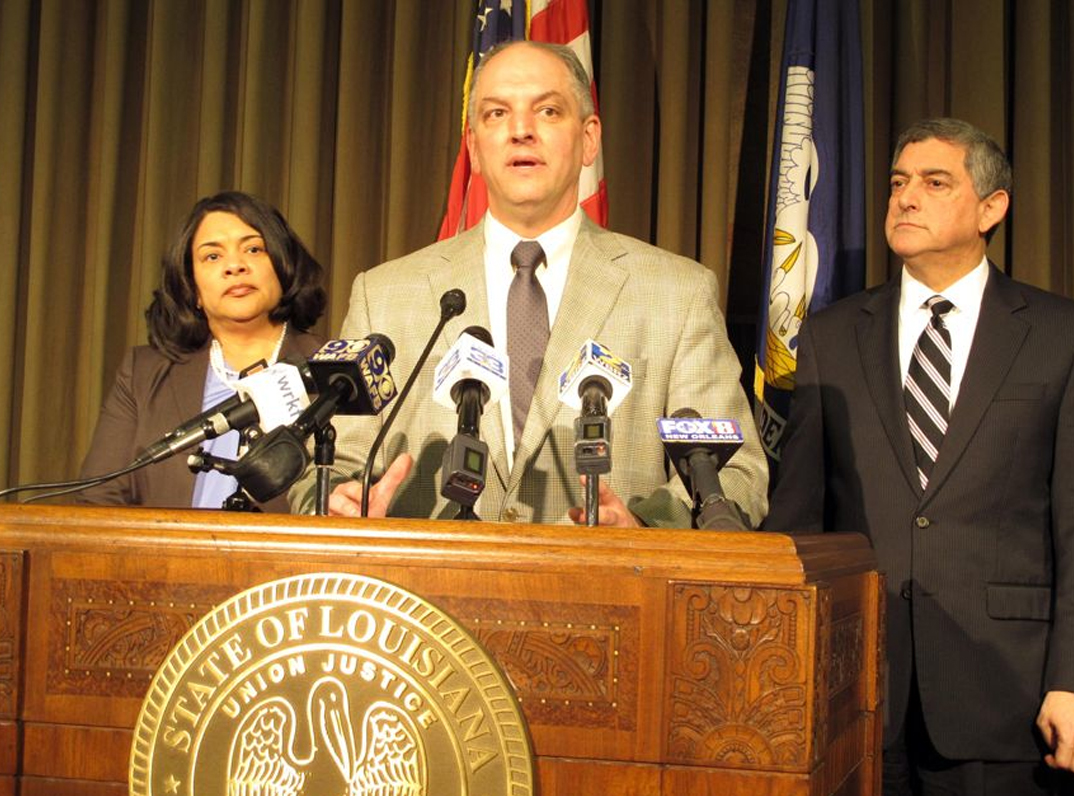190
BATON ROUGE — Gov. John Bel Edwards' administration presented its doomsday budget to lawmakers Saturday, showing the widespread cuts that would be levied across public colleges and health care services without new money for the state treasury.
[

Louisiana Gov. John Bel Edwards, center, unveils his proposals for balancing Louisiana's budget, including a list of tax increases for legislative consideration, during a news conference, Tuesday, Jan. 19, 2016, in Baton Rouge, La. Joining Edwards are Revenue Secretary Kimberly Robinson, left, and Commissioner of Administration Jay Dardenne. AP Photo/Melinda Deslatte
Edwards releases budget proposal without taxes, only cuts
previous post


